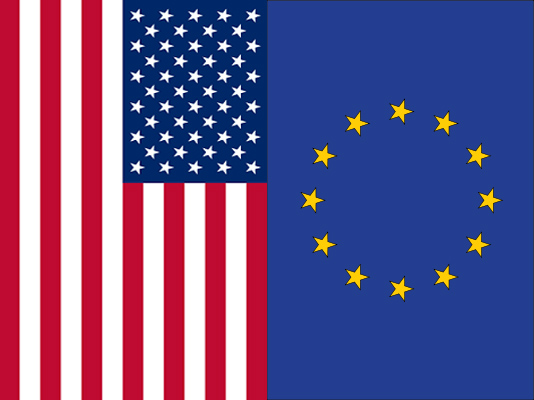 Last week, European Trade Commissioner traveled to the US to meet with US Trade Representative Ron Kirk. There was anticipation that the US and EU might announce their intention to negotiate a free trade agreement. However, it did not happen. Inside U.S. Trade reports that a formal recommendation from a US-EU working group “has been delayed over what seems to be U.S. reluctance to accept on face value the assurances of EU officials that they are willing to make tough decisions on sanitary and phytosanitary rules and agricultural market access.”
Last week, European Trade Commissioner traveled to the US to meet with US Trade Representative Ron Kirk. There was anticipation that the US and EU might announce their intention to negotiate a free trade agreement. However, it did not happen. Inside U.S. Trade reports that a formal recommendation from a US-EU working group “has been delayed over what seems to be U.S. reluctance to accept on face value the assurances of EU officials that they are willing to make tough decisions on sanitary and phytosanitary rules and agricultural market access.”
The High Level Working Group on Jobs an Growth, led by Kirk and De Gucht has been tasked with exploring ways to increase trade between the two side. Its interim report, released last June, concluded that “a comprehensive agreement that addresses a broad range of bilateral trade and investment policies as well as issues of common concern with respect to third countries would, if achievable, provide the most significant benefit of the various options we have considered.”
Earlier this month, Vice President Biden’s speech at the Munich Security conference had indicated support for the trade agreement, and some press reports had treated this as a signal that negotiations could be near. Yet Biden’s speech also acknowledged “difficult issues, such as regulations and standards, which continue to divide us,” and he suggested that He said that if the U.S. and the EU decided to negotiate an agreement,”we should try to do it on one tank of gas and avoid protracted rounds of negotiations.”
The wish to “avoid protracted rounds of negotiations” seems like a high hurdle. Trade agreements take multiple rounds of negotiation (the TPP negotiators will meet for their 16th round in March).
It has been suggested that some of the more controversial issues could be left out of the otherwise “comprehensive” agreement – including IPR. The working group interim report suggested that ““Both sides agree that it would not be feasible in negotiations to seek to reconcile across the board differences in the IPR obligations that each typically includes in its comprehensive trade agreements.” However, industry groups supporting the agreement have urged the U.S. and EU to use it to further strengthen intellectual property protection.




